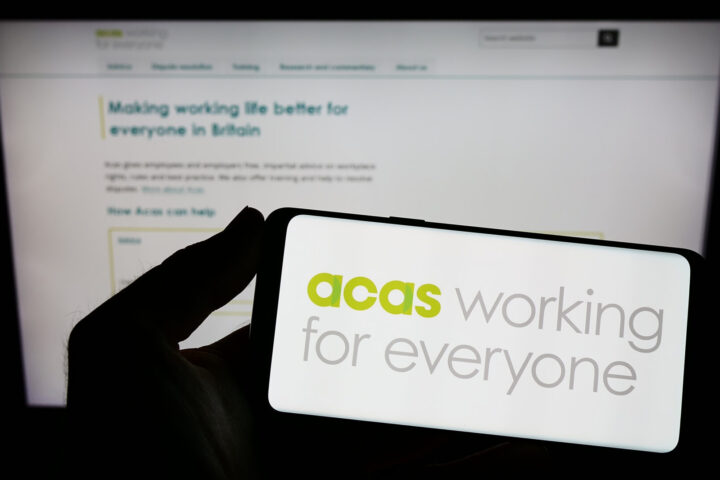15% to 20% of adults are neurodivergent, with this number expected to rise as awareness and diagnosis rates increase, research from a new Acas report has revealed.
Despite this, neurodivergent workers continue to face significant barriers to employment, with findings highlighting that existing workplace policies often fail to support their needs effectively.
The research indicated that while the UK Equality Act 2010 provides legal protection, employment outcomes for neurodivergent workers remain poor.
According to self-identification data from the Labour Force Survey, only one in three autistic individuals is in work, and many neurodivergent employees report inadequate workplace support.
In response to these challenges, the Government launched an independent Neurodiversity Panel in January 2025 to advise on improving job opportunities for neurodivergent people.
The panel is part of the Government’s wider ‘Make Work Pay’ agenda, which included the Connect to Work framework, a programme designed to help individuals with disabilities and complex employment barriers secure long-term jobs.
The report underscored the importance of moving towards proactive neuro-inclusion rather than relying on reactive policy measures.
It suggested that businesses integrate universal design principles to ensure that recruitment, onboarding, and daily workplace operations are accessible to all employees.
Psychological safety is also highlighted as a critical factor, with the report emphasising that neurodivergent employees should feel safe disclosing their conditions without fear of stigma.
Additionally, it called for the development of specialist career pathways tailored to the strengths of neurodivergent workers, enabling them to thrive in roles suited to their abilities.
A key finding of the research is the pivotal role of line managers in fostering neuro-inclusion.
While managers are often the first point of contact for neurodivergent employees, many lack the necessary training and confidence to implement effective adjustments.
The report recommended formalising neuro-inclusion responsibilities within managerial roles and ensuring that all line managers receive ongoing training on neurodiversity.
Standardising adjustment processes and providing centralised guidance are also suggested as ways to reduce inconsistencies in workplace support.
The research further advocated for reasonable adjustments that do not require formal diagnoses.
Many neurodivergent individuals face barriers to obtaining medical documentation, making it difficult for them to access workplace accommodations.
Instead, the report called for a trust-based approach, where adjustments are granted based on individual needs rather than medical proof.
It highlighted that simple, low-cost solutions—such as access to assistive technology, flexible working arrangements, and noise-cancelling equipment—can significantly enhance productivity and job satisfaction.
One of the proposed solutions is the introduction of ‘access passports,’ which would allow employees to document their adjustment needs in a portable format.
These would reduce the burden of repeated disclosures when changing roles or managers.
The report also suggested rebranding workplace adjustments as productivity tools rather than accommodations, to normalise their use and reduce associated stigma.
It recommended that businesses integrate neurodiversity into HR strategies rather than treating it as a separate diversity issue.
The report concluded: “Neuroinclusion and harnassing the talent of neurodivergent workers must be addressed through a holistic, organisational and policy approach as part of wider equality, diversity and inclusion and wellbeing initiatives.
“Clear processes and policies are key to reducing the administrative burden resulting from a reactive and not proactive approach.”

















